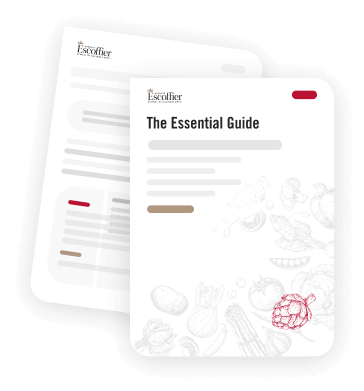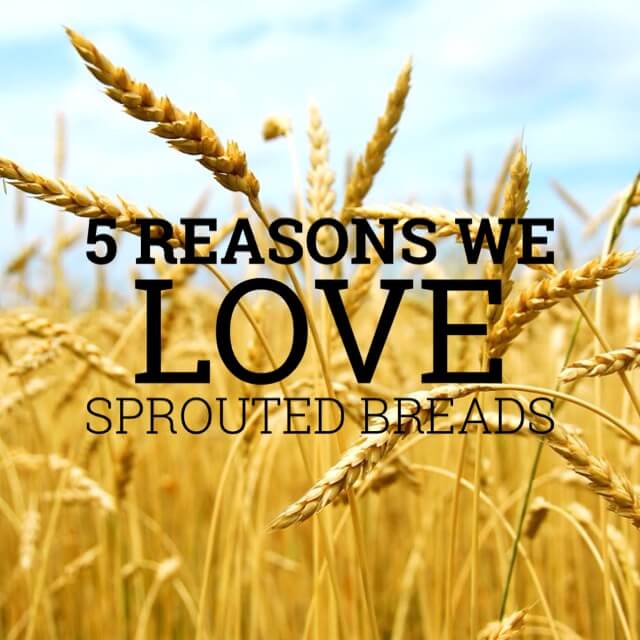5 Reasons We Love Sprouted Breads

The age of health is now and in another food trend, people are taking a closer look into their breads. As grain-free foods, paleo diets and gluten-sensitivities continue to become more prominent, companies are coming up with interesting ways to bring more health into our everyday food consumption. With grains and their by-products being one of the largest parts of most culture’s diets, it’s no wonder something like sprouted grain breads are quickly making their way into more and more meals. We won’t deny it, even the name sprouted grain sounds like something a little too much for most people. When I first heard of it I thought of bean sprouts and the moss that grows on trees somehow being made into edible bread. It didn’t sound appetizing, that’s for sure. But my first bite into a lovely piece of one brand’s product quickly changed my mind and I realized that we’re definitely onto something with this. As much as anyone loves to munch on the occasional piece (or three) of good ol’ fashioned refined white bread, it’s quickly coming to the surface that it carries very few benefits. To further break your heart and give it to you boldly, it’s actually pretty unhealthy. Yes, food is supposed to taste good but that doesn’t amount to much when it’s at the cost of our health and wellness. Plus, unlike what people have been tooting for decades, healthy food can most certainly be delicious as well. Sprouted breads are no different, and with all their texture and flavors, I may even go as far as to say that they’re even tastier than their unhealthy counterparts, whole grain breads excluded. Seriously, avocado toast has never tasted so good.
We did a little bit of research into why sprouted grains are better for you and what you can gain from them for your palatable pleasures. We’re here to tell you why this is one of the greatest contributions to the healthy trend train right now and why we are definitely hopping on.
A Tale As Old As Time
Even though most of you had probably never heard of them before today, last month or a year ago, sprouted grain breads have been around for a long, long time. Like biblical long. The type of bead closest to sprouted bread was referred to as Essene bread. The original stuff was made from sprouted wheat and cooked at a very low heat so it was still essentially raw. Sprouted breads took this concept and rolled with it but didn’t limit their grains to just wheat. Most of them, like Ezekiel bread, contain a mixture of sprouted wheat, rye, barley, spelt and often also contain healthy sprouted legumes like soy or lentils. The tasty mixture of grains and texture of the legumes really let this ancient recipe shine.
It’s Good For Your Heart
Studies have linked sprouted breads to lower cholesterol and a lowered risk of coronary heart disease, similar to that of whole grain breads. It’s also been thought to have fewer carbohydrates, more protein and because the grains are sprouted and not totally ground into flour, higher trace amounts of nutrients and minerals. They are also said to have fewer amounts of gluten and other triggers than other breads but they are not to be considered gluten-free and celiac sufferers should beware. All in all, sprouted breads are easier on the gut, give you way more nutrients than their refined counterparts, aids in digestion and provide tons of amino acids
It Tastes Good
That just about says it all. It’s nutty and crunchy and all around a very tasty thing. It pairs extremely well with all sorts of meats, cheeses, vegetables and preserves. It’s great for toast, sandwiches, hors d’oeuvres and anything else you could think of using bread for. The complex flavors also enhance much of what you add to it, making for a total culinary package.
Anti-What?
Over time, plants have started to evolve and fight against the pests that continuously feed on their crops and make it difficult to grow. What has started happening is the plants have begun to produce “anti-nutrients,” poisons that make it difficult to eat and digest the raw form. But it’s not only the pests it’s affecting. Anti-nutrients make it difficult for humans to digest the food too. It’s one big problem for humans who can have all sorts of problems from it. Luckily, sprouting does a lot in ridding the grains of those pesky things that can deter nutrient absorption and make digestion difficult.
Variance
In a day and age when gluten has all of a sudden become kryptonite to many people’s digestion, eating wheat has become a serious problem. Some say it’s the pesticides , the GMO and others say it’s all of the above. One major cause for concern is overeating. The food pyramid used to list grains as the most important part of the food pyramid, the base of the American diet. Whereas grains are important in diet, we may have overdone it when it comes to wheat, especially refined wheat with added sugar and high fructose corn syrup and all that nasty stuff. Sprouted breads consist of up to 8 different grains and legumes, creating a varied and healthy alternative to whole wheat. Many of them, like millet, corn and rice, are also gluten-free which means fewer difficult-to-digest proteins. Plus, did we mention it taste awesome?


